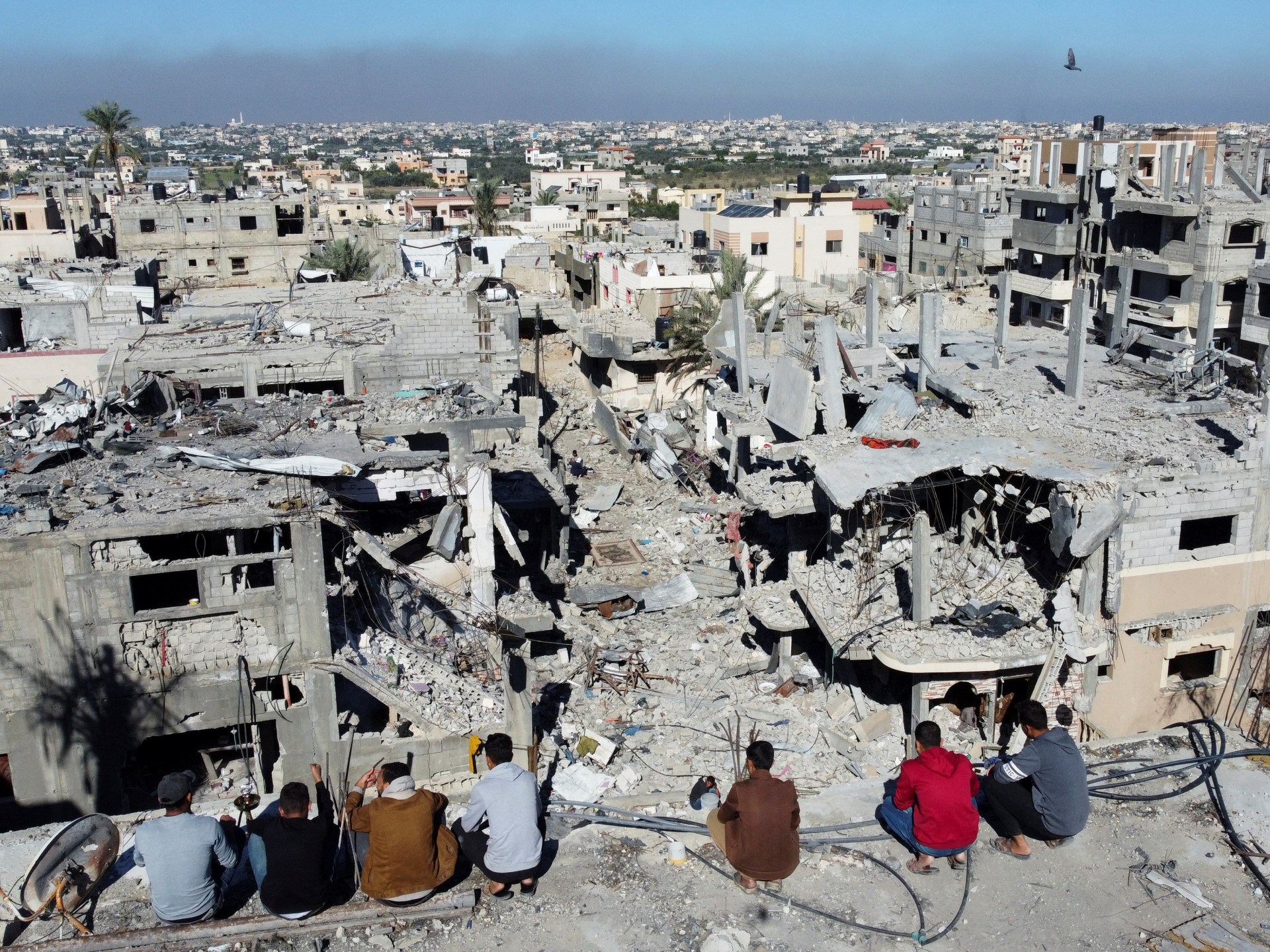
As the war on Gaza continues with no end in sight, Israel will attend the 28th United Nations Climate Change Conference (COP28), which began on Thursday in Dubai. This will be an invaluable opportunity for the Israeli government to engage in “green diplomacy,” promote its climate technologies and divert the international community’s attention from its illegal occupation, apartheid and ongoing war crimes against the Palestinians.
In fact, attending the world’s most important climate event while simultaneously indiscriminately bombing an illegally besieged area will allow Israel, which has long sought to hide its theft of Palestinian land and resources under the guise of pseudo-“environmental protection,” to carry out its extensive to advance “environmental policy”. “Greenwashing” agenda is taking dangerous new extremes.
Given the scale of atrocities committed by Israel in Gaza in recent weeks, the presence of an Israeli delegation – regardless of its size or the relative seniority of its members – will cast a shadow over COP28.
The Israeli government has said its delegation to the conference has been significantly “reduced” due to “current events” and that Prime Minister Benjamin Netanyahu and his top ministers will not be present. Still, it said Israel would still have a pavilion at the conference that would be used to promote its environmental startups and initiatives, particularly those from war-affected southern regions.
Regardless of who in the Israeli government attends the summit this year, it will be more concerned than ever with selling Israel’s image as a leading environmentalist. The dissonance caused by Israeli officials’ sudden shift from genocidal threats to pro-environmental jargon will be startling to global audiences.
For example, can anyone take seriously the recommendations of Israeli Energy Minister Israel Katz on clean and sustainable energy, who declared at the beginning of the war: “Humanitarian aid to Gaza?” No electrical switch will be turned on, no tap will be opened and no tanker truck will arrive until the Israeli abductees have been returned home”? Or can anyone with any self-respect take the ecological advice of Israel’s Agriculture Minister Avi Ditcher, who declared that Israel is implementing “Nakba 2023” in Gaza?
Although the Israeli government says the genocide part out loud, it cannot expect that its rhetoric will not have long-term diplomatic, economic and possibly legal consequences or damage the country’s position as a climate leader. Jordan, for example, has already emerged from a crisis Energy and water agreement with Israel which was hatched at COP27 due to what the Jordanian foreign minister described as “Israel’s barbarism in Gaza.”
The public relations impact caused by Israel’s war will also make it difficult for the country to sell its climate technology solutions, as global audiences will find it difficult to reconcile Israel’s alleged concern for the environment with its current actions in Gaza.
Israel’s airstrikes and total blockade of the Gaza Strip have brought civilians to the brink of dehydration and starvation. The UN had to pressure Israel to allow clean water into the area and not to use water as a “weapon of war.” More than 15,000 people in Gaza have been killed in indiscriminate attacks on residential areas, schools and hospitals, including thousands of children. Those who survive lack adequate shelter, food and medical care.
Before Israel’s latest attack, the Gaza Strip was barely habitable due to a years-long, relentless blockade. Now Israel’s indiscriminate bombing and total siege – its ongoing genocide – has also unleashed ecocide in Gaza. Even if the war ended today, it would take years for Gaza’s natural ecosystems to recover.
Of course, Israel’s greenwashing efforts didn’t start with this war either. Since its founding, Israel has sought to green its occupation of Palestine and oppression of the Palestinian people.
In fact, since Israel’s founding in 1948, the Jewish National Fund, Israel’s largest green NGO, which controls 13 percent of state land, has driven Palestinians off their land and destroyed their villages under the pretext of protecting forests and preserving nature reserves. Hundreds of thousands of olive trees have also been uprooted, destroying the lives and livelihoods of Palestinians.
Meanwhile, Israel’s state-owned water company Mekorot has created “water apartheid” in the occupied West Bank, where Jewish settlers use six times more water than the 2.9 million Palestinians living there.
Despite its apartheid policies in the West Bank, Mekorot has managed to position itself internationally as a leading contributor in the quest to achieve the UN Sustainable Development Goals. She chaired a special session on water at COP27 and released annual reports on environmental, social and governance (ESG) and corporate responsibility, with little attention or even mention of her practice of water apartheid against the Palestinians.
At COP27 last year, Israeli President Isaac Herzog, who recently supported collective punishment of civilians in Gaza, promised that Israel would be “net zero” by 2050. However, since he did not mention Palestine and the Palestinians in his speech, it is unclear whether the environmental consequences of the occupation, apartheid, or the 40,000 tons of explosives dropped on Gaza (equivalent to more than two atomic bombs) were in the CO2 this year Israel’s footprint would be included.
Author and analyst Zena Agha has described Israel’s environmental policies as “Janus face“, on the one hand, promoting “environmental reforms and technological development” and, on the other, “depriving Palestinians of their land, water and other natural resources.”
Given the ongoing genocidal assault on Gaza at COP28, this duplicity will reach new extremes.
COP28 is already facing criticism for maintaining strong ties to major oil companies while setting a technical and diplomatic agenda for transitioning away from fossil fuels. The optics of an Israeli delegation at COP28 in the midst of an ongoing offensive that has inflicted unprecedented humanitarian and environmental damage on Gaza will undoubtedly further damage the conference’s reputation.
Indeed, the scale of the humanitarian crisis that Israel has created in Gaza has not only exposed Israel’s decades-old greenwashing strategies and tarnished its image as a leader in climate solutions, but has also called into question the credibility of a state-centric approach to combating global warming that is all ignores human rights.
By allowing Israel to become the site of its increasingly brutal attacks on Palestinian people, land and essential infrastructure, as well as its disregard for UN resolutions, institutions and staff (more than 100 UN staff were killed in the Gaza war). COP28 threatens to undermine crucial aspects of the global climate agenda, namely state compliance, accountability and respect for international law and institutions.
While Israel’s participation in COP28 exposes one of the many existing problems with our current approach to combating global warming, it is not too late to change course.
Those committed to climate justice should use this conference as an opportunity to call out greenwashing and highlight the obvious connection between human rights and the climate emergency. As Greta Thunberg rightly said, “there can be no climate justice on occupied land” and occupiers should not be allowed to use climate conferences to color their wars green.
The views expressed in this article are the author’s own and do not necessarily reflect the editorial stance of Al Jazeera.






Recent Comments